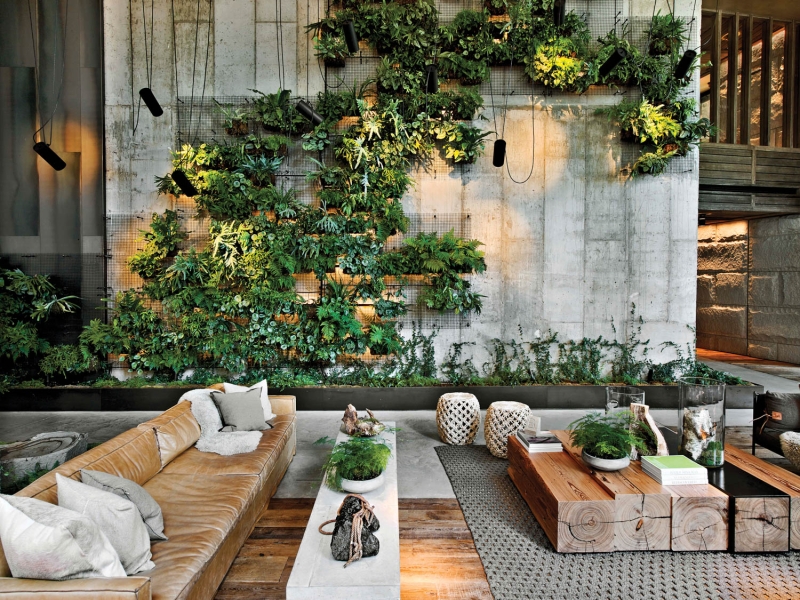Contents
1 Hotel Brooklyn Bridge in New York, 2017.
Adam Rolston, Drew Stuart, and Gabriel Benroth, the cofounding partners of INC Architecture & Design, joke that together they make one great principal. Rolston, the creative and managing director, is a conceptual thinker who steers the overall aesthetic of a project. Stuart, the development and construction director, is a detail-oriented people person who helps realize the design on-site. And Benroth, the studio and information director, is a systems guy who creates innovative, interactive renderings. Since they started INC in 2006, the firm has grown to 50 employees—and scored such marquee commissions as the master plan and renovation of the rink level at Rockefeller Center—but each partner still works on every project. “That’s our secret sauce: We’re owners who are deeply engaged,” Stuart begins. They also love what they do, and their youthful enthusiasm is evident in INC’s distinctive work.
The trio’s complementary skills emerged early. As kids in their respective hometowns of Los Angeles and Danville, Kentucky, Rolston and Stuart sat in on architect meetings when their parents built new homes. Rolston also absorbed the warm, refined style of his grandfather’s Gregory Ain house, and later studied painting and sculpture while at Syracuse University’s School of Architecture; he still practices art today and even recently wrote a book called Joyspace, his manifesto on inclusive design. Stuart focused on the craft of building: He bought and renovated a historic house by hand while at the University of Cincinnati School of Architecture and Interior Design. Benroth, meanwhile, got his creative start planning plots for the local garden club in his Mennonite community in northern Ohio. At UC a year after Stuart, his tech-heavy courses included computer programming and 3-D animation.
The trio met in 1999 in New York at Tsao & McKown Architects, where Rolston, who was a senior associate and the studio director, hired Stuart and Benroth as interns; Rolston had joined the firm in 1993 after a stint at Bentley LaRosa Salasky. The three worked on high-end residential and commercial projects and found they were a strong team. “They knew how to get the best from the client and from each other,” fellow Interior Design Hall of Fame member and firm partner Calvin Tsao remembers. After seven years together at Tsao & McKown, they struck out on their own—with the full support of Tsao and copartner Zack McKown. “There’s no tradition in the profession of helping people start studios, no passing of the baton,” Rolston notes. “But Calvin and Zack did.” They even handed off a few projects that Rolston, Stuart, and Benroth were working on to get them going.
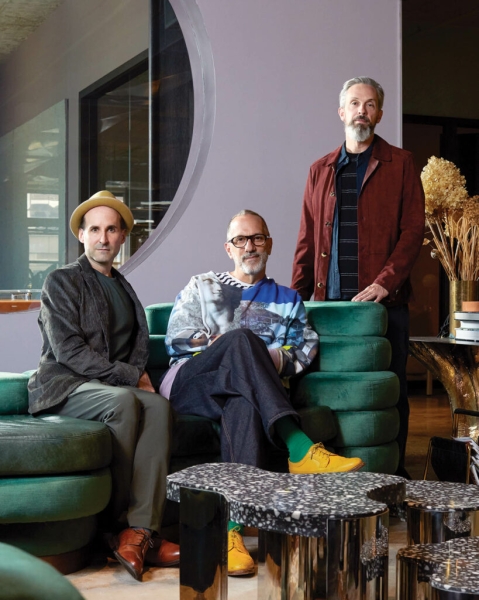
The partners at INC’s studio in the Hudson Square neighborhood of Manhattan. Photography by Shawn McCarney.
INC is based in New York. As the name implies, the firm is a collaborative practice: It is an acronym for incunditas necessarius creo, or joy utility craft, terms that allude to the partners’ roles. “We took the design of our studio as seriously as the design of our projects,” Rolston says. Thanks to Benroth, who, while interning at UC’s Center for the Study of Practice in Architecture in the late ’90’s, had collected organizational handbooks and analyzed industry metrics from other architectural firms, the trio developed a structure that prioritizes cooperation, transparency, efficiency, and technology. “Every project is unique, which takes a lot of time because you’re not copying and pasting,” Benroth says. “If we have clear processes in place, it frees people up to be more creative and engaged in the work.” That includes interior and exterior architecture and furniture design; sometimes, INC is the architect of record as well. “We like to have control of the whole scope,” Benroth adds.
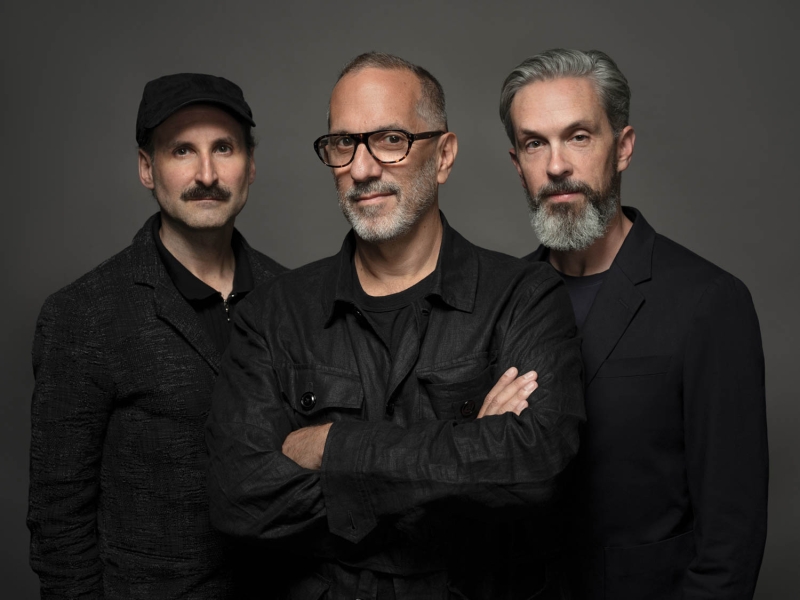
The cofounding partners of INC Architecture & Design, from left: Gabriel Benroth, Adam Rolston, and Drew Stuart. Photography by Sasha Maslov.
Learn About INC Architecture & Design’s Innovative Projects
At first, INC took on multifamily building renovations in Manhattan, as well as exhibition designs for the Jewish Museum and Rolston’s own weekend house in Upstate New York. They were relatively small projects, but the partners approached them as they always do: “We aim to be honest, thoughtful, and earnest with our ideas,” Stuart says.
That philosophy is apparent in INC’s industrial, sustainable interiors at 1 Hotel Brooklyn Bridge, a 2012 commission that marked a turning point. Developer and Hall of Famer Barry Sternlicht, CEO of Starwood Capital Group, entrusted the then-unknowns with conceiving the brand’s flagship. Rolston, Stuart, Benroth, and their team devised greenery-filled spaces that are of their place on the Brooklyn waterfront yet avoid pastiche. There’s a story behind every plank of reclaimed wood. The rooftop pool affords breathtakingly panoramic New York City views. All of which added up to the project earning myriad awards and landing on the September 2017 cover of Interior Design.
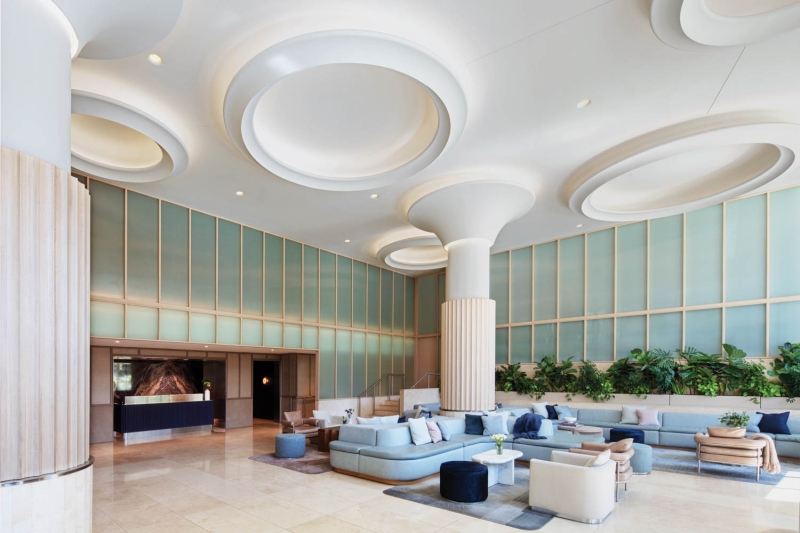
The Morrow Hotel Washington, 2022. Photography by Eric Laignel.
At the Line DC hotel in Washington—which, like the 1, opened in 2017—INC balanced the site’s history as a landmarked former church with the offbeat sensibility of the surrounding Adams Morgan neighborhood. A few years later, over the COVID pandemic, the firm completed the public spaces for the Morrow Hotel Washington, a ground-up project in the nearby NoMa area that is “airy, open, and joyful,” Rolston notes, a much-needed dose of optimism for the city.
How INC Architecture & Design Founders Embrace Emotional Connection
More hospitality and residential projects followed, including the Joseph, an artsy luxury hotel in Nashville, Tennessee, and Parlour, Saint Marks Place, the Vandewater, and Anagram Columbus Circle, all multiunit apartment buildings and all winners of NYCxDesign Awards. A renovation of the landmarked Gulf Tower in Pittsburgh into a hotel and residences is next, as is the ground-up Velvære, a wellness and residential community in Park City, Utah, and Manifest, a barbershop/café/store and private members club in Washington.
Behind these and all INC projects is a rigorous discovery process the founders call “forensic aesthetics.” This involves not just understanding the physical and programmatic context but also how people experience it. “It’s about an emotional connection to place,” Rolston notes. For the event and gallery spaces at the TWA Hotel at John F. Kennedy International Airport in Queens, INC harnessed nostalgia for the flight center and Eero Saarinen himself, looking to the architect’s early rationalist works to distinguish the new structure from the 1960’s one. Similarly, at a place as iconic and freighted with memories as Rockefeller Center, INC wasn’t about to reinvent the wheel. “You have all the ingredients upstairs at 30 Rock—we just remixed them,” Stuart says. Walking through the airy, curvaceous bronze-and-terrazzo concourse, you’d be forgiven for thinking it’s a restoration of the original art deco design, but it’s all brand-new—and done so expertly that it sits well with locals and the building’s office workers as it simultaneously draws tourists.
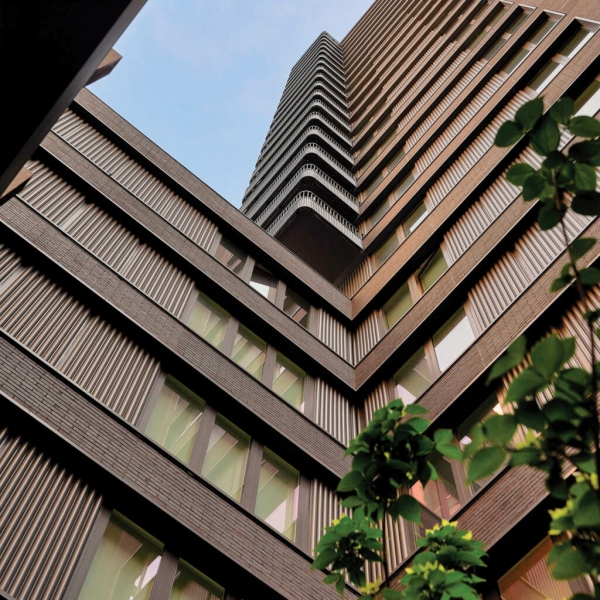
Anagram Columbus Circle, 2024, a luxury rental building on Manhattan’s Upper West Side. Photography by Brooke Holm.
This approach takes a certain humility and empathy with the end user and a sensitivity to inclusivity for all. It’s about absorbing the invisible but ever-present history and meaning of a place and translating it into something physical, be it a floor plan or fluted panel. Rolston, Stuart, and Benroth “have a fundamental compassionate nature toward human use and human life,” Tsao picks up the thread. “That’s why their work is compelling and unique. . . and will last.”
A Peek At Top Hospitality Projects
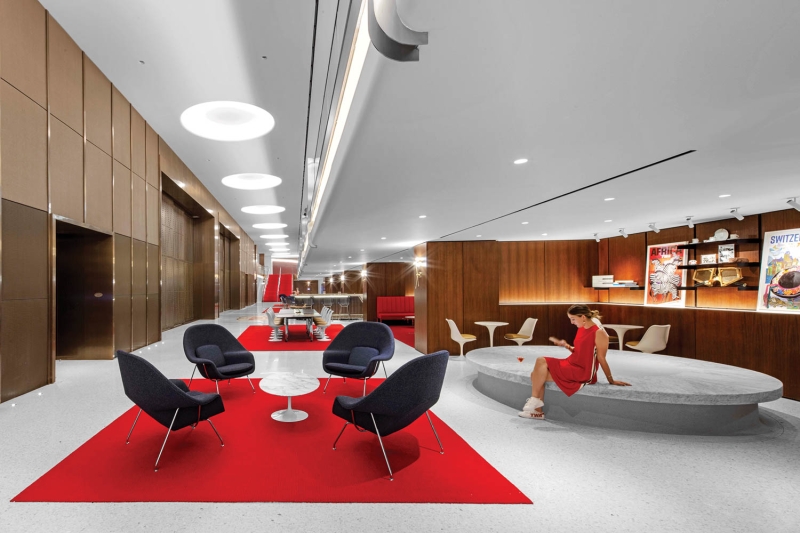
Part of the three-story subterranean events center at the TWA Hotel at John F. Kennedy International Airport in Queens, New York, 2019. Photography by Eric Laignel.

Parlour Brooklyn, a condominium building in New York’s Park Slope, 2020. Photography by Ivane Katamashvili.
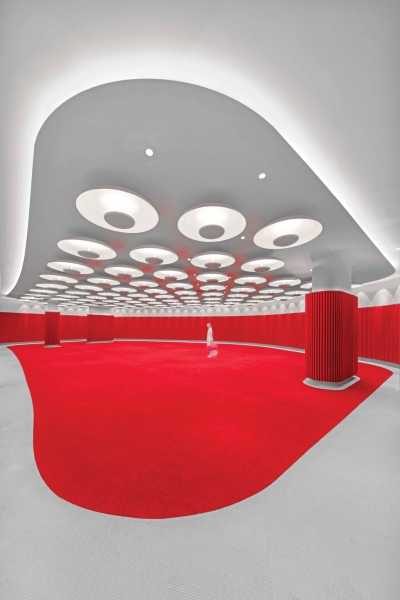
The flight center’s former baggage-claim area turned ballroom. Photography by Eric Laignel.
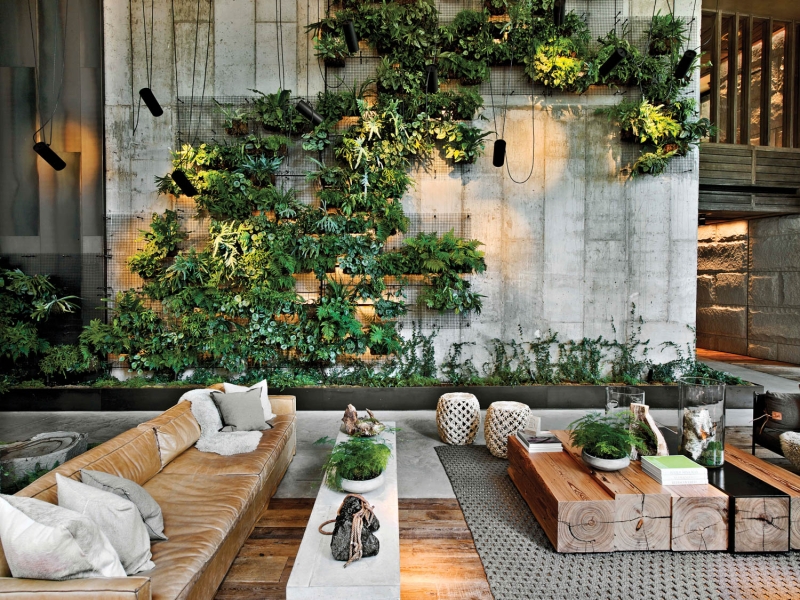
1 Hotel Brooklyn Bridge in New York, 2017. Photography by Eric Laignel.
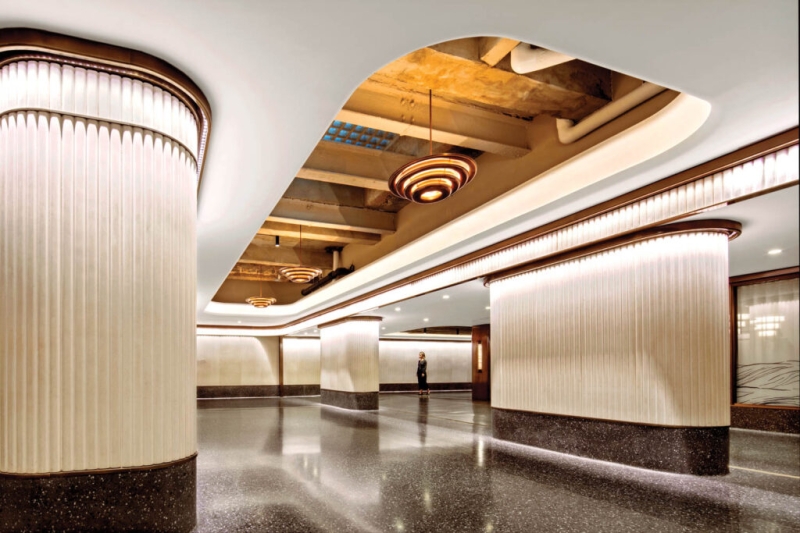
Rockefeller Center Rink Level, an approximately 50,000-square-foot project from 2022, also in New York. Photography by Eric Laignel.
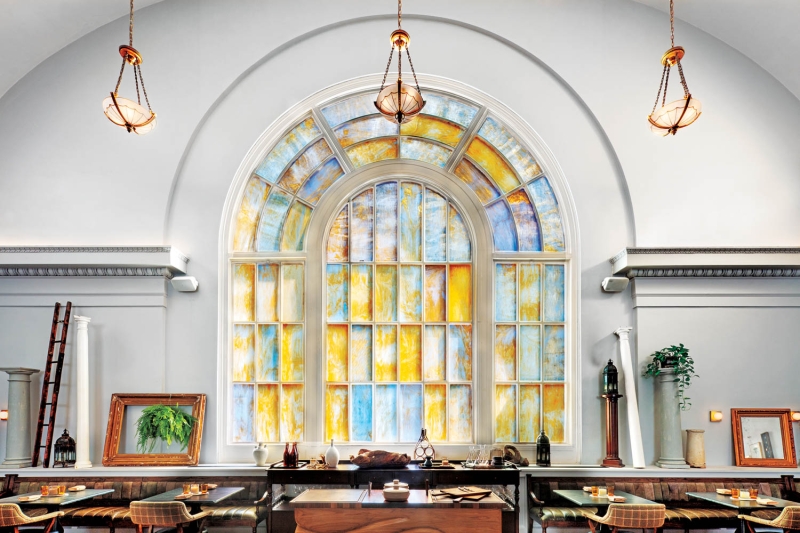
The Line DC, a Washington hotel, 2017. Photography by Eric Laignel.
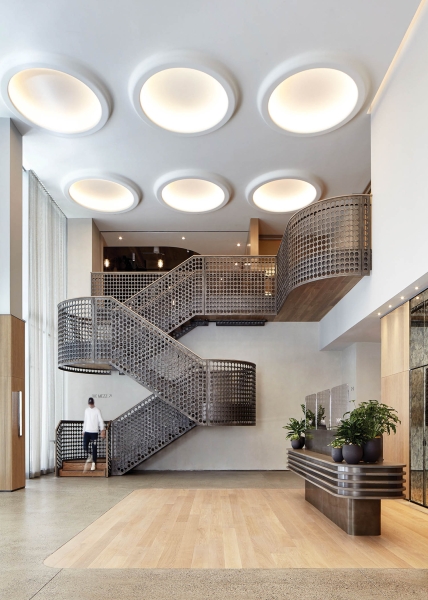
The 2021 NYCxDesign Award–winning stair in the lobby of 1740 Broadway, an office building. Photography by Joshua McHugh.
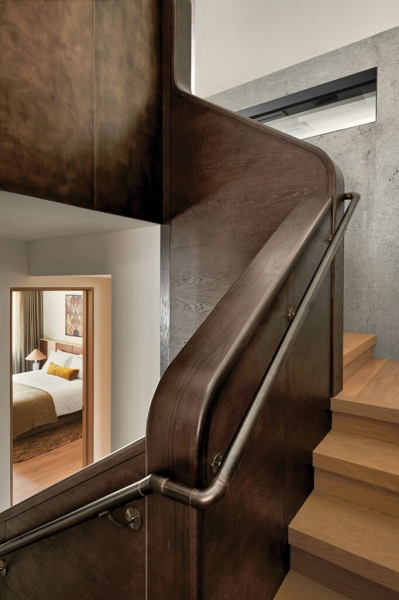
A hotel in Aspen, Colorado, a current project. Photography by Brooke Holm.
INC Architecture & Design’s Foray Into The Residential Space
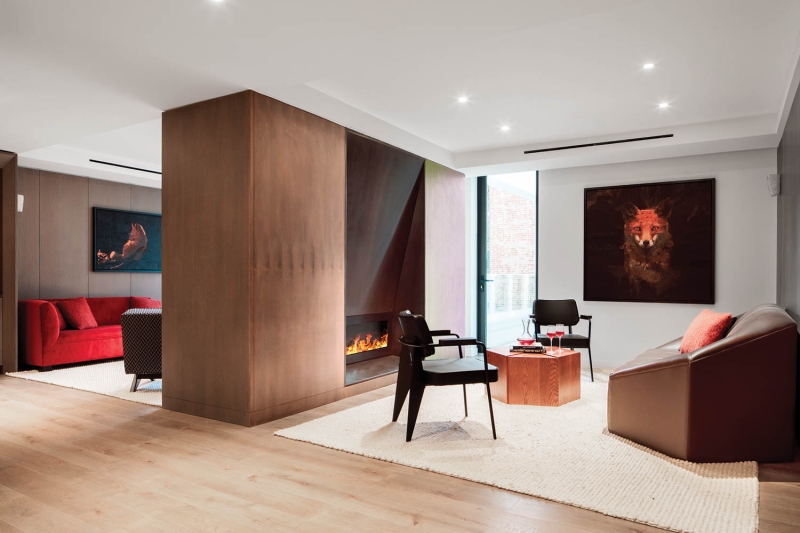
A lounge at Saint Marks Place, a 2022 condominium project in Boerum Hill, Brooklyn. Photography by Conor Harrigan.
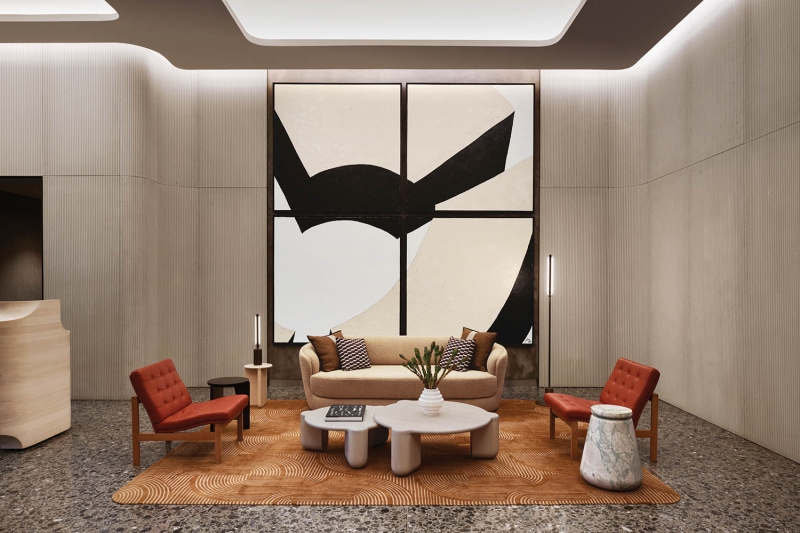
The lobby at Anagram. Photography by Brooke Holm.
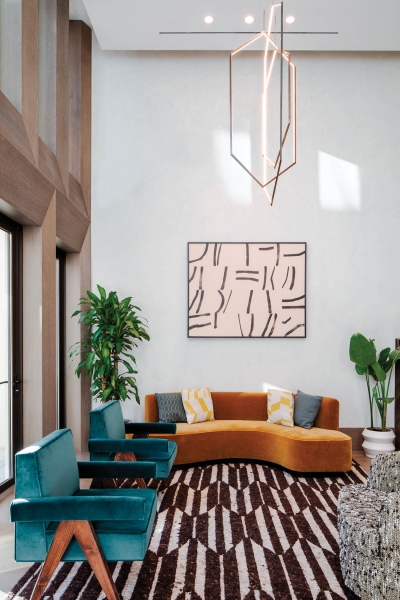
Another amenity space at Saint Marks Place. Photography by Conor Harrigan.
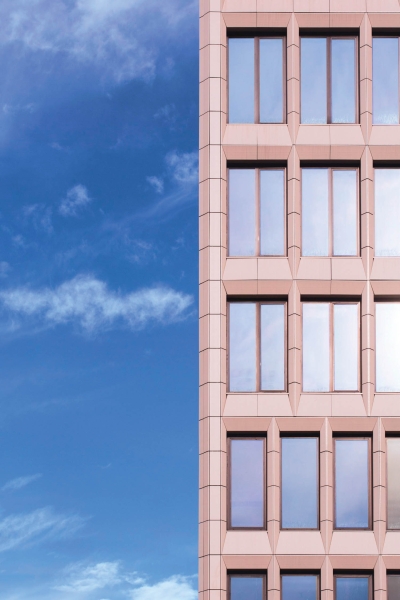
The building’s terra-cotta facade. Photography by Ivane Katamashvili.
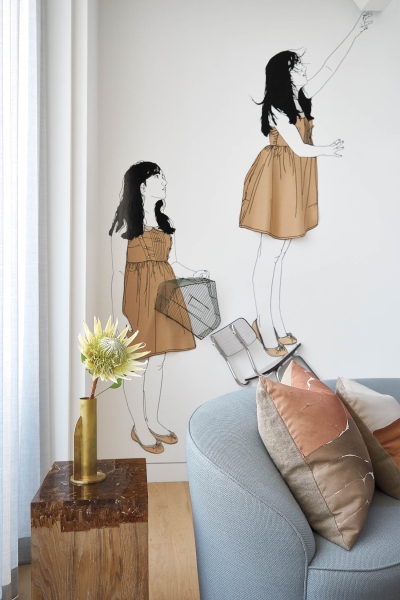
A three-story town house in Chelsea, Manhattan, 2016. Photography by Joshua McHugh.
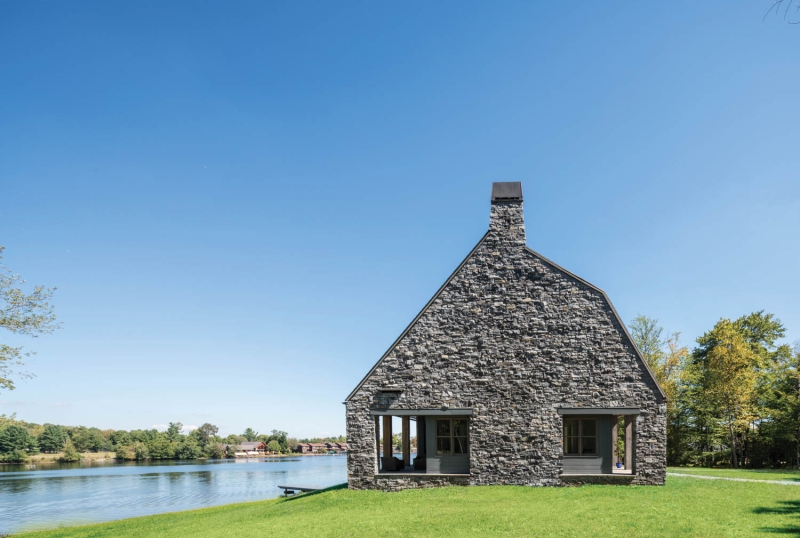
A house in Bethel, New York, 2016. Photography by David Heald.
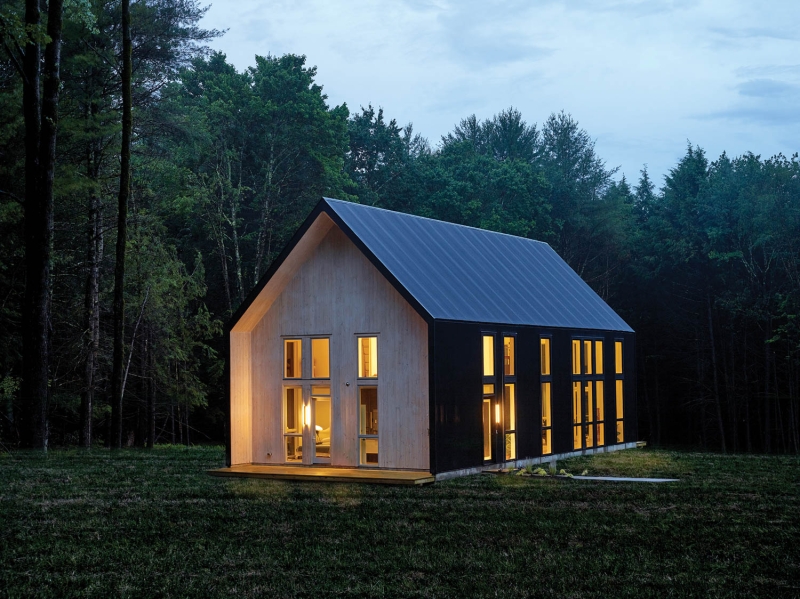
A house in the Catskills, New York, 2021. Photography by Noah Kalina.
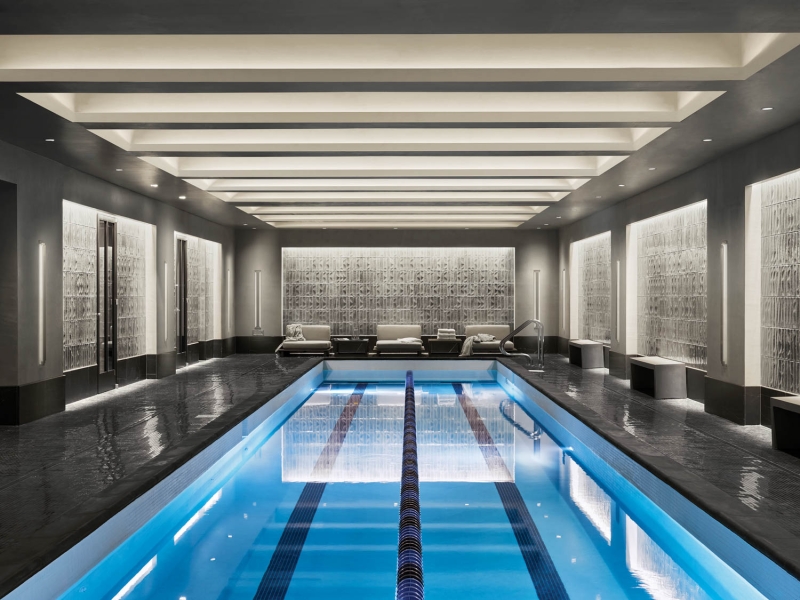
The Vandewater, a 2022 condominium building in Morningside Heights, Manhattan. Photography by Alice Gao.

